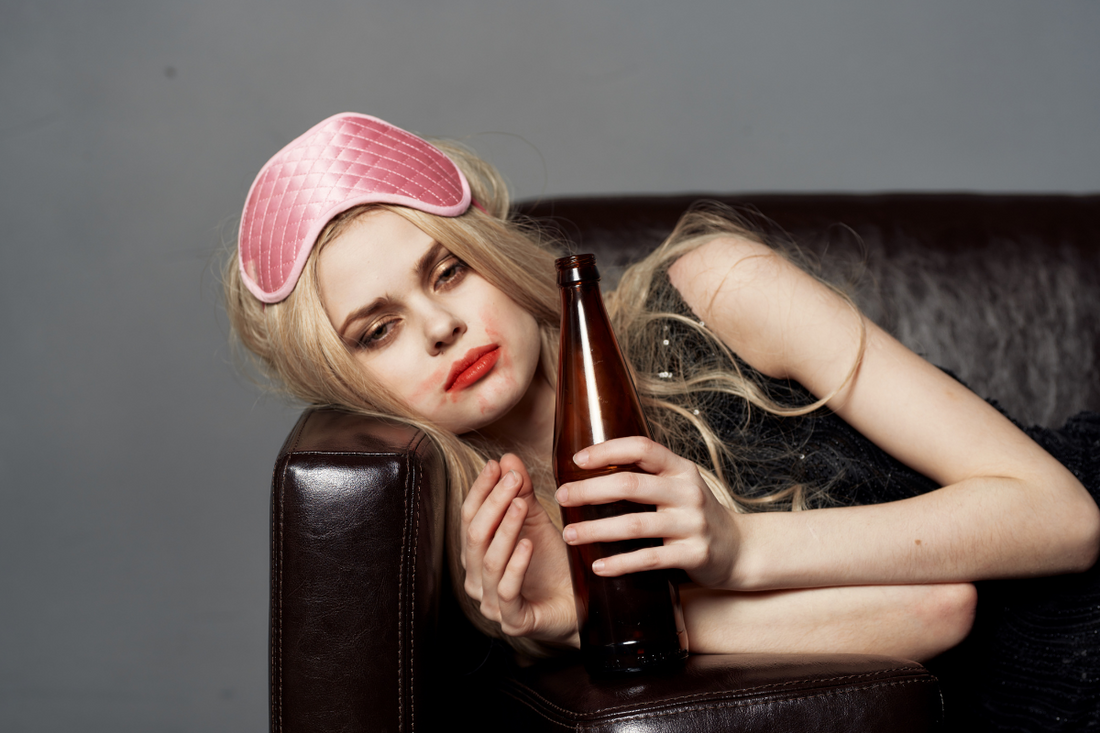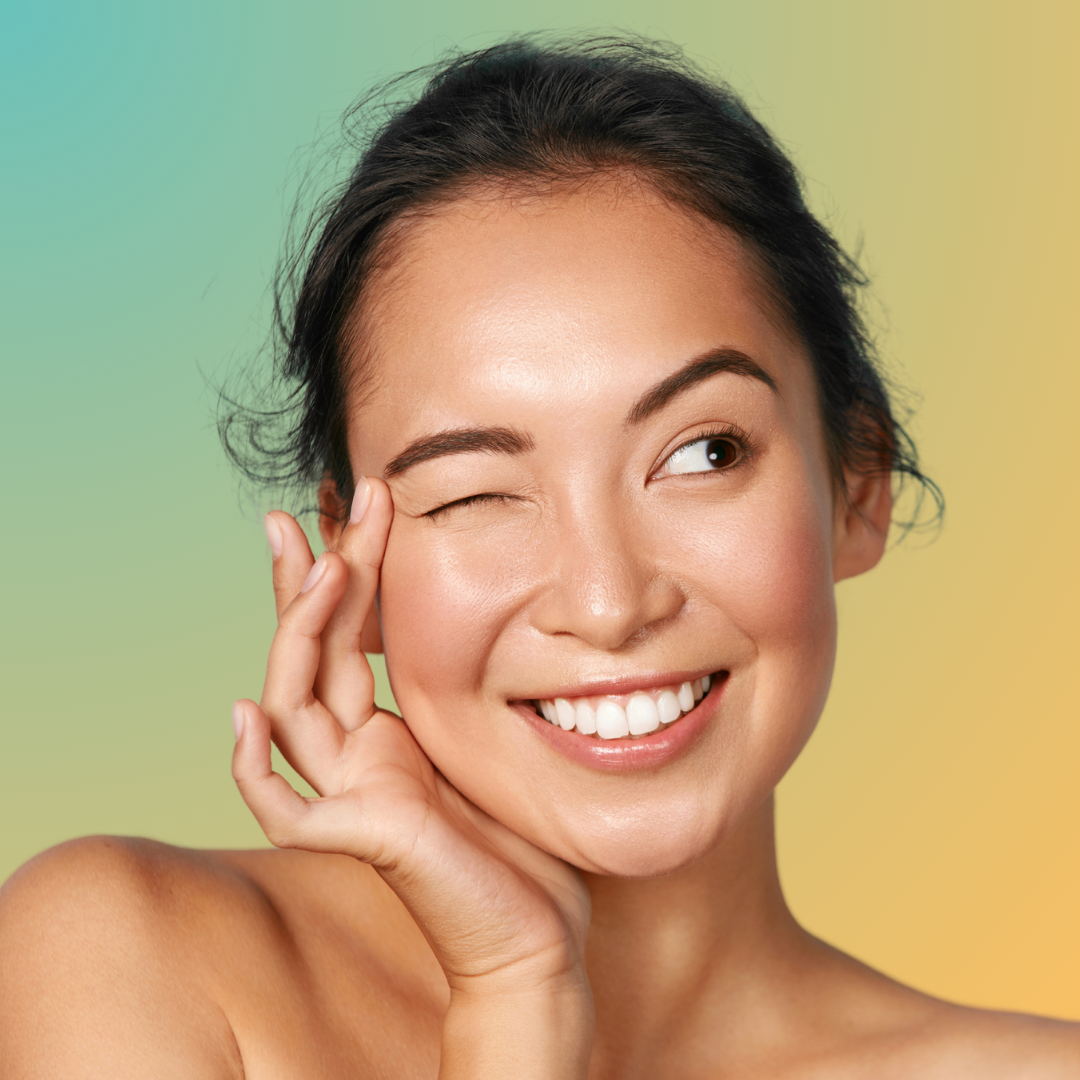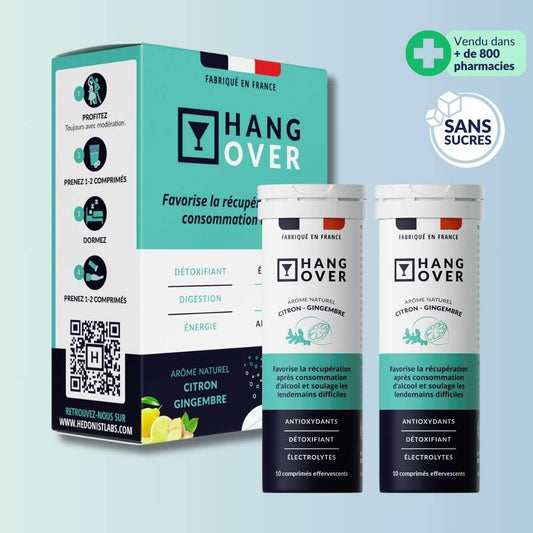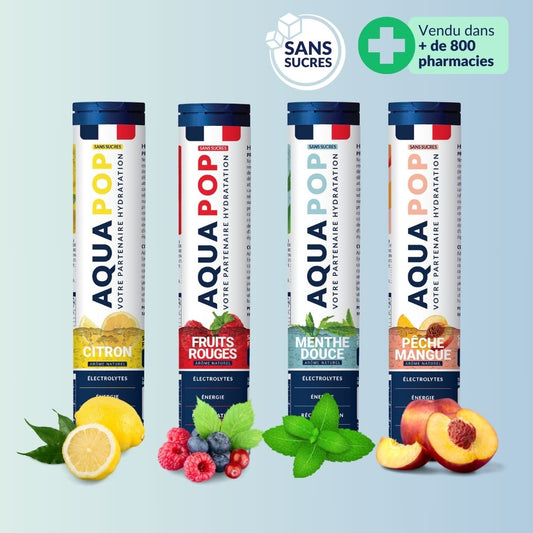The Impact of Alcohol on Sleep and our Solutions for Better Rest
Drowsiness, fatigue, the urge to sleep after a few drinks. Despite these sensations associated with alcohol consumption, it's common to feel tired the next day.
Indeed, in the case of low to moderate alcohol consumption, researchers observe a sedative effect, leading to a faster onset of sleep.
During the first half of the night, alcohol increases the duration of light slow-wave sleep, then tends to reduce or even eliminate REM sleep (the shortest phase of sleep characterized by intense brain activity).
On a nightly basis, alcohol reduces intense sleep cycles and alters sleep in general through nocturnal awakenings.
This is because alcohol acts on various sleep-related mechanisms.
First of all, alcohol increases body temperature.
In order to fall asleep, our bodies must gradually lower their temperature. Alcohol tends to prevent sleep.
Secondly, alcohol has a negative impact on the secretion of numerous molecules, such as GABA. GABA is a molecule that relaxes the body, making it easier to fall asleep.
Alcohol consumption can also develop or accentuate certain sleep disorders.
Alcohol is mainly responsible for snoring and sleep apnea.
So, even when consumed in low doses, alcohol has an impact on our sleep, reducing its quality, shortening its duration and increasing the number of nocturnal awakenings.
Impaired sleep has an impact on our daily lives, with notable consequences such as fatigue and reduced alertness, but can also affect the proper functioning of our organism (e.g. hormone secretion).
Hedonist Labs offers a dietary supplement to help limit symptoms associated with alcohol consumption, andimprove sleep quality. It contains lemon balm, renowned for its sedative effect, which helps combat sleep problems, stress and anxiety.
For your health, consume alcohol in moderation.
Sources :
Colrain, I. M., et al, (2014). Alcohol and the sleeping brain. Handbook of Clinical Neurology, 415‑431. https://doi.org/10.1016/b978-0-444-62619-6.00024-0
Danel, Tet al., (2001). The effect of alcohol consumption on the circadian control of human core body temperature is time dependent. American Journal of Physiology-Regulatory, Integrative and Comparative Physiology., 281(1), R52-R55. https://doi.org/10.1152/ajpregu.2001.281.1.r52
He, S., et al, (2019). Alcohol and sleep-related problems. Current Opinion in Psychology, 30117-122. https://doi.org/10.1016/j.copsyc.2019.03.007
Inkelis, S. M. (2020). Sleep and Alcohol Use in Women. Alcohol Research: Current Reviews, 40(2). https://doi.org/10.35946/arcr.v40.2.13
Issa, F. G et al, (1982). Alcohol, snoring and sleep apnea. Journal of Neurology, Neurosurgery & Psychiatry., 45(4), 353-359. https://doi.org/10.1136/jnnp.45.4.353
Roehrs, T. et al., (2001). Sleep, sleepiness and alcohol use. Alcohol Res Health. Published.
Thakkar, M. et al, (2015). Alcohol disrupts sleep homeostasis. Alcohol, 49(4), 299-310. https://doi.org/10.1016/j.alcohol.2014.07.019
Van Reen, E., et al, (2011). Does Timing of Alcohol Administration Affect Sleep? Sleep, 34(2), 195-205. https://doi.org/10.1093/sleep/34.2.195




